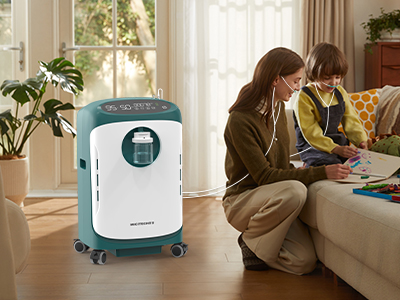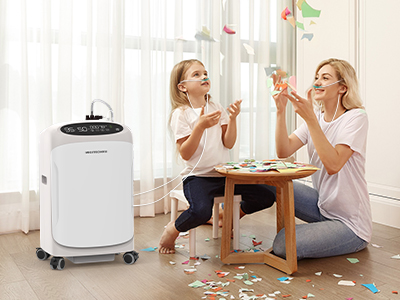11 Aug 2025
For frail oxygen concentrator users, every movement can feel like it has a price tag. The smallest chores—pouring tea, folding laundry, or answering the door—can take more out of you than you’d like to admit. The key to maintaining independence isn’t doing everything faster, but doing everything smarter. With the right techniques, you can stretch your energy further than a cat stretching in a sunny window.

Prioritize Like You’re Curating a Masterpiece
Your day isn’t a buffet—you don’t have to sample every dish. Instead, choose your tasks with the precision of a museum curator selecting the finest pieces.
Spot the non-negotiables: Meals, medication, and the sacred ritual of sitting down.
Delegate the energy vampires: Vacuuming, heavy lifting, or chasing the cat under the couch.
Combine efforts: If you’re walking to the kitchen, take the mail and your water glass. Efficiency is the silent hero.
Not all tasks are worthy of your limited energy. Give your best hours to the essentials and the joys, not the dust bunnies.
Plan Your Day Like a Chess Grandmaster
Energy loss loves the element of surprise. Avoid ambush fatigue by thinking several moves ahead.
Time your activities for when your body feels most generous—often in the morning.
Schedule built-in pauses before you reach exhaustion.
Group similar tasks to reduce unnecessary trips across the room (or across the house).
Each planned step is one less drain on your reserves, leaving more oxygen—and patience—for the things that truly matter.

Pace Yourself with Unapologetic Grace
There’s no prize for finishing the dishes in record time if you’re too tired to eat afterward. Pacing means sprinkling your day with enough breathing space to keep you moving without collapse.
Divide big jobs into bite-sized tasks—one load of laundry folded now, another later.
Breathe rhythmically when moving, aligning motion with your oxygen flow.
Resist the “just finish it” urge when fatigue sets in—it’s the oldest trick in tiredness’s book.
Your oxygen concentrator is steady; you should be, too.
Let Tools and Gadgets Do the Heavy Lifting
If there’s a device that makes life easier, adopt it like it’s family. Tools are not a sign of weakness; they’re a sign of wisdom.
Rolling carts make transporting items effortless.
Grabbers mean no more heroic lunges for dropped socks.
Lightweight appliances save muscles and moods.
Every ounce of effort you save is an ounce of strength you can use elsewhere—preferably somewhere more fun than the laundry room.
Rest Like It’s Part of the Plan—Because It Is
Resting is not a concession; it’s a strategy. In fact, you should schedule your rests with the same seriousness as medical appointments.
Short, regular breaks keep you in the game longer than one big rest at day’s end.
Create a rest zone with your concentrator positioned so you can recharge without fuss.
Practice slow, calming breaths to replenish both body and mind.
Think of it like keeping your phone charged—don’t wait until you’re at 1% to plug in.
Organize Your Space for Effortless Movement
A home set up with intention is like a supportive friend—it makes life easier without you even noticing.
Store essentials within easy reach to avoid bending or stretching.
Rearrange pathways for smoother movement, especially with concentrator tubing.
Place duplicates of essentials—like tissues or reading glasses—where you use them most.
Small adjustments can save you dozens of micro-efforts, which add up faster than you think.
Keep an Emergency Energy Reserve
Even the best plans meet unexpected demands—a visitor, a misplaced item, or a mini crisis. Having a backup store of energy means you’re ready for the curveballs.
Don’t run your energy tank dry on non-urgent tasks.
Recognize early warning signs of fatigue and slow down before they intensify.
Have a “drop everything” rest option ready in case you overstep your limit.
Being prepared means you can handle surprises without tipping into exhaustion.
Keywords: Oxygen Concentrator
Originally published 11 Aug 2025, updated 11 Aug 2025.